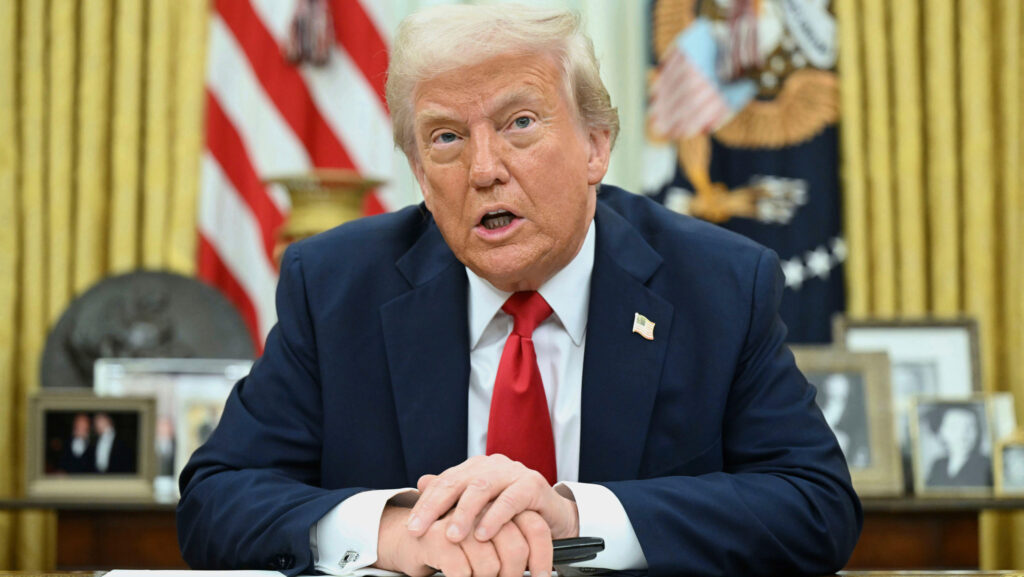Editor’s View: A week for big schemes at home and abroad
 Donald Trump © Associated-Press/Alamy Stock Photo
Donald Trump © Associated-Press/Alamy Stock Photo “Walk softly and carry a big stick” was how former US president Theodore Roosevelt summarised his approach to foreign policy.
“Shout loudly and flail wildly with a revolver and a golf club” is more the style of the current occupant of the White House, president Donald Trump.
As Farmers Weekly went to press this week, the full details of his “Liberation Day” tariffs – and the impact they’ll have on global trade – were yet to emerge, but fears of them dampening UK exports to the US abound.
See also: Disgruntled cereal growers start milling wheat ‘strike’ in April
It may be a significant impediment to prime minister Sir Keir Starmer’s growth agenda, hence much anxious talk on this side of the pond about a trade deal that would grant us a certain level of protection.
This is where it gets interesting for farming, as a reduction of tariffs on the import of some US agricultural products, such as chicken and beef, is reportedly one of the offerings to tempt Mr Trump’s tiny orange hand to reach for a pen and ink the deal.
There’s no suggestion at this stage that the UK’s import ban on chlorine-washed chicken or beef produced using growth hormones would be lifted. It’s to be hoped that the red line around that stays as bright as one of the president’s hallmark ties.
Yet this is a tricky issue for farming lobbyists, as it’s not as simple as opposing a trade deal under any circumstances, for fear of giving something else away.
There will be a cost to agriculture if fresh tariffs are levied on the food and drink exports (including whisky, salmon and dairy products) we send to the US each year – a market worth £2.4bn in 2023.
So it is understandable that concessions have to be made in some areas for the greater good – although that will be of little comfort to those impacted by the giveaways.
Of course, it won’t be the fate of livestock producers keeping the prime minister and the secretary of state for business and trade awake at night, as they mull how big an offer they can make to “His MAGA-sty”, but how much the wider public will tolerate.
And the message from the public when it looked like the chlorine chicken ban was under threat last time was swift and emphatic – it’s not something the vast majority want on their plates.
In other news, we’re about to learn if a bread shortage is also on the list of food-related things that society won’t tolerate – if organisers can successfully engineer one after asking farmers not to load milling wheat for two weeks.
Stopping it flowing into mills will require cross-industry co-ordination on a grand scale, with participation by individual growers with on-farm storage and members of centralised stores.
To mitigate the supply of wheat leaking through, the organisers – who are the same farmers that brought you the Westminster protests – are seeking to provoke panic buying by talking up fears of a shortage.
I guess the next two weeks will show whether they are wielding a big Rooseveltian stick, or just a little twig.

